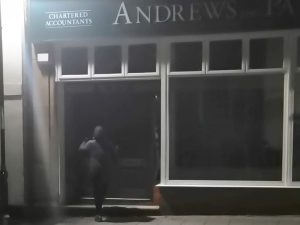Next week, jailed journalist Julian Assange will have an appeal hearing in London. It could be the last attempt to stop him being sent to the US, where he faces 175 years in prison. So, people are already mobilising to show solidarity and support with him. And if you’re not – consider what side of history you’re going to be on.
Assange’s final chance?
As campaign group Free Assange wrote:
The UK High Court has confirmed that a public hearing will take place on 20-21 February 2024. The two-day hearing may be the final chance for Julian Assange to prevent his extradition to the United States. If extradited, Assange faces a sentence of 175 years for exposing war crimes committed by the United States in the Afghan and Iraq wars.
The Canary has extensively documented Assange’s case. He has been confined in the high-security Belmarsh Prison since he was arrested on a US extradition request on 11 April 2019. Since then, it has become clear that his charges, his incarceration, and the US state’s attempted extradition of him amount to not only a witch hunt and human rights violations, but an attempt to set a precedent regarding the freedom of journalists and publishers.
Multiple twists and turns
Assange’s case has had multiple twists and turns:
- In 2017, US congressman Dana Rohrabacher met with the WikiLeaks founder in the Ecuadorian Embassy in London, to offer him a deal. Robinson was present at the meeting. Rohrabacher wanted Assange to provide evidence that Russia did not hack the Democratic National Committee emails. At the time, president Donald Trump was under investigation as part of the Mueller inquiry into alleged Russian interference in the 2016 election. Rohrabacher told Assange that if he agreed to provide the evidence, Trump would arrange a pardon or protection against extradition. But Assange was not prepared to name the source of the leak. An indictment followed.
- UN special rapporteur on torture Nils Melzer concluded in 2019 that Assange had been subjected to “torture”.
- .
- In January 2021, a judge ruled that Assange’s extradition was disallowed on health grounds and the risk that he could take his own life.
- Meanwhile, in October 2021 news emerged that the CIA planned to kidnap and kill Assange in London.
- In December 2021 the US appealed the extradition decision, offering an ‘assurance’ that, according to Assange’s lawyer, US authorities would not “place him under SAMs unless they decide he later deserves it”. The magistrate then ruled that the extradition could go ahead after all, once the home secretary approves it.
- In June 2022, then UK home secretary Priti Patel agreed that Assange could be extradited.
- Further appeals from Assange’s legal team followed – and failed.
- Of the 18 charges listed against Assange, one is simply about measures taken by any journalist to protect a source – in this instance Chelsea Manning. The other charges merely relate to receiving and publishing of information and so violate a journalist’s freedom of expression.
Protest in solidarity with Assange
Now, Assange is facing his last chance to stop the extradition. That’s why hundreds of people will be supporting him – protesting outside the Royal Courts of Justice during the hearing.
On Tuesday 20 and Wednesday 21 February, people will gather from 8.30am. They will be witness to what Free Assange says is a:
decisive stage in Mr Assange’s appeals [which] will determine one of two outcomes: whether Mr. Assange will have further opportunities to argue his case before the domestic (UK) courts, or whether he will have exhausted all appeals without a possibility for further appeal in the UK and thus enter the process of extradition. An application before the European Court of Human Rights remains a possibility.
The campaign for freedom is supported by Amnesty International, the National Union of Journalists, Reporters Without Borders and virtually every civil rights, press freedom, and journalists’ union in the world.
As John Rees from the Free Assange campaign said:
This is the most important press freedom case of the 21st century – we must ensure we don’t lose any hard-won freedoms.
What side of history are you on?
However, it is perhaps his wife Stella who summed the situation up best. She said:
The last four and a half years have taken the most considerable toll on Julian and his family, including our two young sons.
His mental health and physical state have deteriorated significantly.
With the myriad of evidence that has come to light since the original hearing in 2019, such as the violation of legal privilege and reports that senior US officials were involved in formulating assassination plots against my husband, there is no denying that a fair trial, let alone Julian’s safety on US soil, is an impossibility were he to be extradited. The persecution of this innocent journalist and publisher must end.
You can find out more about the days of action here.
This is not a case just about Assange. The freedom of every independent journalist and publisher who are brave enough to challenge corporate, capitalist, and colonial powers is at stake. To stay silent now is to mark your place on the wrong side of history.
Feature image via Anarchmedia – Flickr




